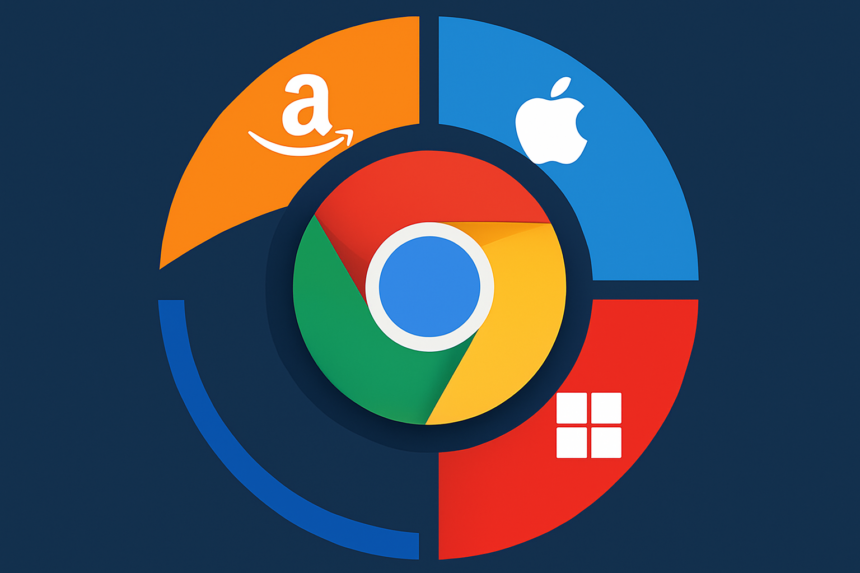In an unexpected twist to Google’s ongoing legal battles, Perplexity, a growing AI company, has expressed interest in acquiring Google’s Chrome browser, a key player in the digital world. The move comes after a ruling from U.S. District Judge Amit Mehta, who has labeled Google as a monopolist in the search industry. While Google fights to maintain control of Chrome, competitors like Yahoo and OpenAI have also entered the race to acquire the popular browser.
What’s Happening & Why This Matters
The U.S. Department of Justice (DOJ) has raised antitrust concerns over Google’s dominance in search, and a potential remedy could involve the company selling its iconic Chrome browser. Google’s legal team has strongly opposed the move, fearing negative impacts on Chrome and the Chromium open-source platform, which serves as the base for many other browsers, including Microsoft Edge and Opera.
However, Perplexity‘s Chief Business Officer, Dmitry Shevelenko, seized the opportunity to pitch his company as a potential buyer. During testimony, Shevelenko boldly stated that Perplexity could run Chrome without diminishing its quality or charging users. The browser’s open-source nature and vast influence make it a valuable asset, which explains why several big players are interested.
Yahoo has also joined the list of suitors, stating that acquiring Chrome could significantly bolster its search offering. Yahoo is currently developing its browser, which it hopes will help it challenge Google’s dominance. According to Brian Provost, Yahoo’s General Manager of Search, Chrome is “arguably the most important strategic player on the web.” Provost added that with the support of Apollo Global Management, Yahoo could pursue the acquisition of Chrome or potentially another browser.
OpenAI, the creator of ChatGPT, has similarly expressed interest in buying Chrome. This aligns with OpenAI’s ambition to strengthen its search capabilities, especially following the launch of SearchGPT last year. Acquiring Chrome would give OpenAI access to Google’s search technologies, improving the quality of their products.
While these companies may have the resources to purchase Chrome, Google’s legal team argues that such a move could lead to serious consequences, such as security vulnerabilities and the destabilization of the Chromium ecosystem. This has led to concerns about data protection and how the browser could be managed under new ownership.
TF Summary: What’s Next
The fate of Chrome remains uncertain, as ongoing discussions continue. If the U.S. courts decide that Google must divest the browser, it could significantly restructure the digital sphere. The potential buyers — Perplexity, Yahoo, and OpenAI — are all poised to change the future of web browsing, but the questions surrounding security and quality control remain unresolved. Only time will tell how this legal saga will end and which company, if any, will take the reins of Google’s prized browser.
— Text-to-Speech (TTS) provided by gspeech


